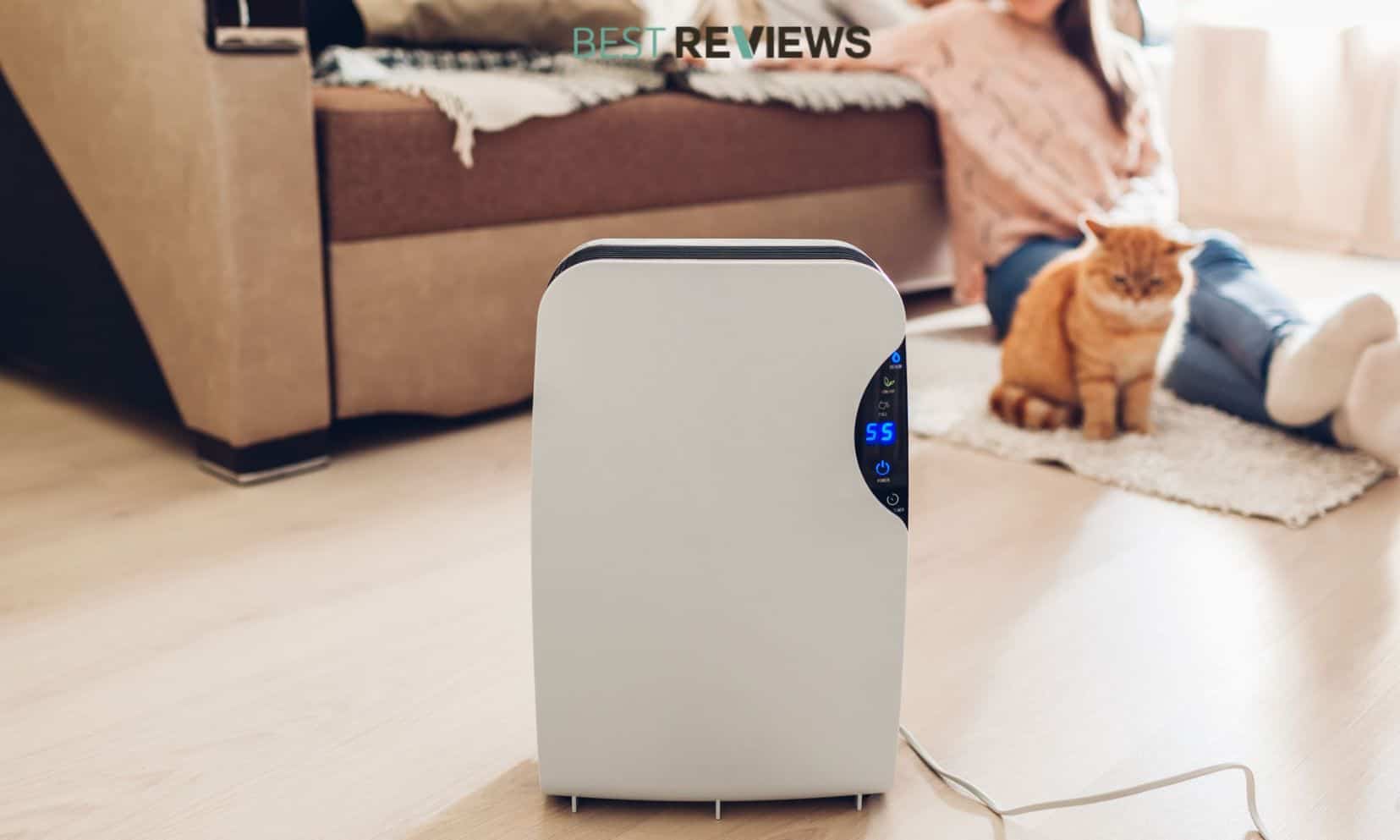How Long Do You Need to Wait to Get that Fresh, Clean Air?
If you’ve recently got your hands on a new air purifier or if you’re thinking of getting one, you might be wondering how long they take to work? Keep reading to find out!

Air purifiers have gained so much popularity over the last few years as people have become more conscious of looking after themselves and creating a relaxing home environment where they can switch off from work.
People with allergies and other sensitivities also often find some relief in having an air purifier at home, and as air purifiers have become more commonly sought-after, the technologies they use have evolved.
So just how long does it take for the average air purifier to do its job? Unfortunately, there’s no set amount of time as this will depend largely on the type of air purifier you have as well as the volume of particulate matter in the air.
This article will tackle these questions so that you know what to expect from your air purifier, and will also explore the factors that affect how effective an air puffier is. Without further ado, let’s start at the beginning!
The Evolution of Air Purifiers
Air purifiers have a longer history than you might initially expect, and can be dated back to as long ago as the early 1800s. With the boom of coal-based industry across the late 1700s and early 1800s, air pollution was at an all-time high in urban landscapes.
This prompted ingenious minds across Britain to start thinking about different ways to lessen the health risks associated with the polluted air.
In 1823, two brothers – Charles and John Deane – invented what they referred to as the ‘smoke helmet’ for assisting firefighters working in highly smoke-polluted environments. This helmet was a massive, heavy, and very clunky bit of equipment that was not at all convenient for firefighters.
It consisted of a bulky copper helmet attached to a long pipe that would have “clean” air pumped into it for the firefighter to breathe. Whilst the design was flawed for many reasons, the idea was heading in the right direction.
In 1854, John Stenhouse improved upon this technology by creating the first charcoal-based filter to use in protection against chemicals, toxins, and smoke. These charcoal filters could be adapted for different purposes including individual respirators for personal use.
The first HEPA (high efficiency particulate air) filter was created in 1940 by a research and development firm called Arthur D. Little who wanted to innovate a means for protecting soldiers and scientists from radiation during the Manhattan Project in World War II.
The HEPA filter was also found to filter out other particles such as dander, pollen, dust, smoke, and other air pollutants.
The first air purifying system for use within the home was invented in 1963 by Manfred and Klaus Hammes. This system was the first commercial device for cleaning home air that used a HEPA filter, and although it wasn’t nearly as sleek or efficient as the purifiers we know today, it was commonly used in households in Germany at the time.
Fast-forward to 1988, and Swiss technology company IQAir begins marketing the first portable home air purifier, much closer to what we have nowadays, and the technology used continued to develop and improve as the purifiers became more effective and compact.
How Long Do Different Air Purifiers Take to be Effective?
With the advanced technology we have the luxury of today, air purifiers are more efficient and faster acting than ever before. It doesn’t take long for most air purifiers to begin making a difference to the air quality in a room, but there is some variation amongst the different types.
HEPA Filtered Air Purifiers
HEPA air purifiers are probably the most commonly used type in residential settings and there are many models to choose from. Depending on the size of the room, the speed of the purifier fan, and the purifier’s individual specifications, HEPA air purifiers can take anywhere between 30 minutes and 2 hours to clean the air in a space.
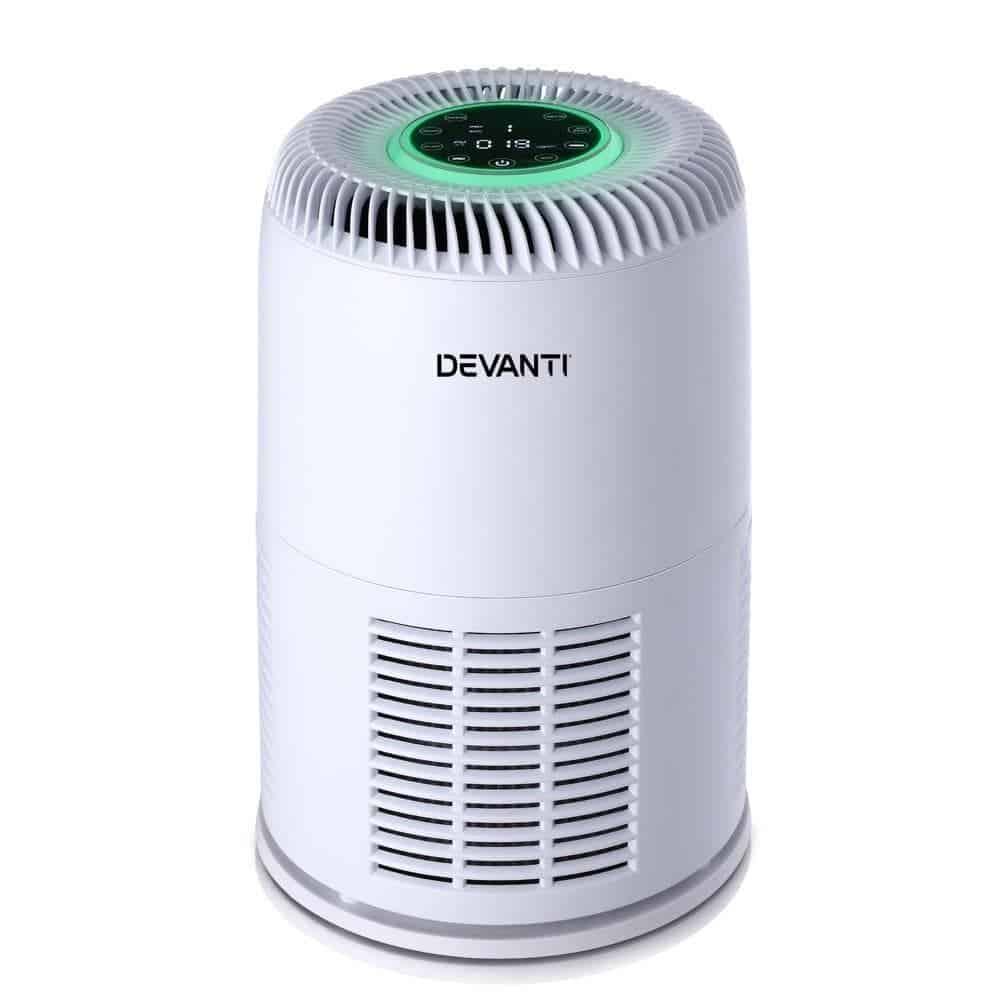
A relatively strong fan in an air purifier with high turnover ratings such as ACH (air changes per hour) and CADR (clean air deliver rate) will be able to remove impurities from the air in no time at all, and you’ll start noticing the effects within half an hour. HEPA purifiers will lower ratings or slower fans will naturally take longer.
Alternatively, using a small air purifier in a large room will also take longer as the purifier will have a lot more work to do to reach the whole space. You can learn more about the relation between air purifier size and space here.
Ionic Air Purifiers
Most ionic air purifiers are not fan-assisted and work by drawing positively charged particles out of the air based on the natural air currents of the space. These air purifiers that do not use fans take a lot longer to successfully remove pollutants from all the air in a space, particularly if the room is large.
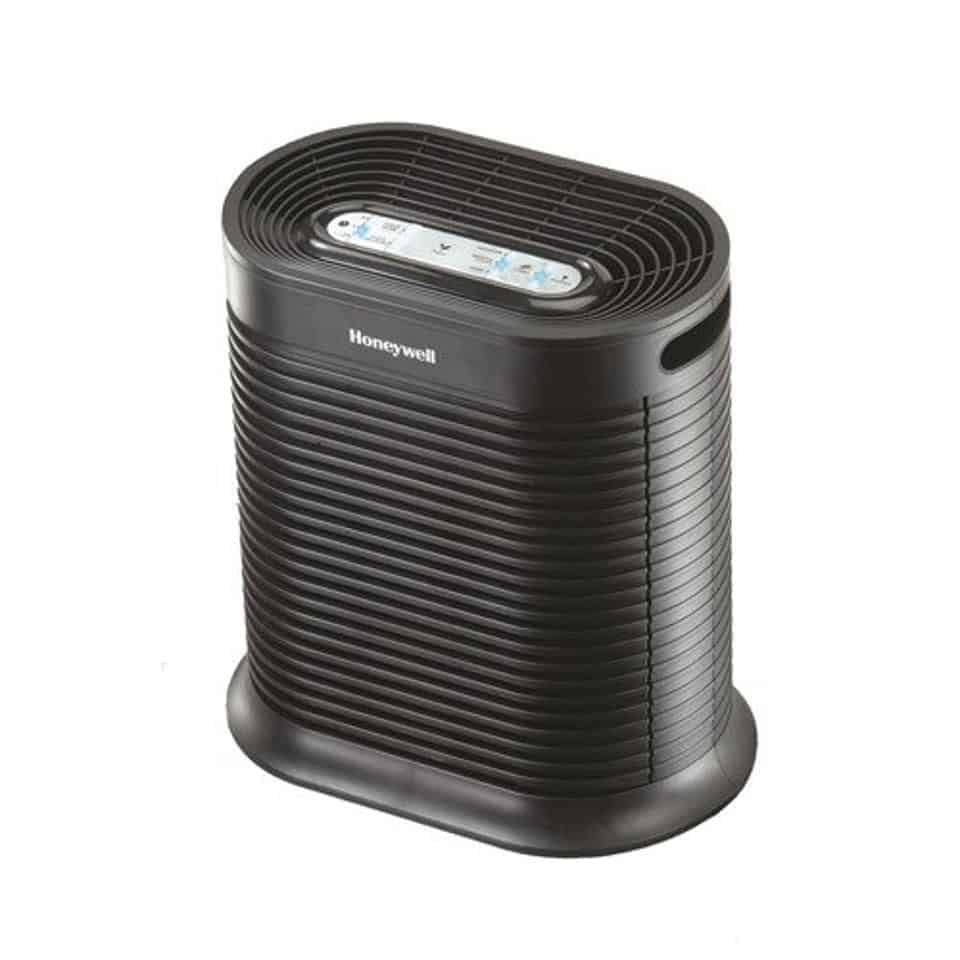
Some ionic air purifiers do use fans however, and this greatly speeds up the air cleaning process. Whereas an ionic purifier without a fan might take between 1 and 2 hours to purify the air in a room, a fan-assisted ionic purifier in the same room will take half the time or even less depending on fan speed!
Ionic air purifiers using an electrostatic collection plate will also be limited in speed by how often the plate needs to be cleaned. If there are a lot of pollutants in a room, the ionic purifier will deposit particles on the plate more quickly which will mean cleaning is required more often. If the plate is not cleaned often enough, this can affect the ionic air purifiers ability to draw out particles from the air, slowing its overall function down.
Carbon Filters
Carbon and activated charcoal filters are not generally used on their own as they mainly target odours and chemical fumes rather than dander, pollen, and pathogens. However, when used in conjunction with another type of air purifier, they work very efficiently.
The average time for a carbon filter to be effective ranges between makes, models, and sizes, but the rule of thumb is that the more carbon or charcoal contained in the filter, the more quickly it will be able to absorb impurities. This is sped up further still if you introduce a fan to the process.
Similarly to the electrostatic plate of the ionic air purifier, purifiers using carbon filters will also require frequent cleaning and filter replacements. The more saturated your carbon filter is, the slower it’ll be.
Factors Affecting Air Purifier Effectiveness
As touched on briefly above, the size of the room will greatly affect the effectiveness of your air purifier. Using an air purifier that is too small or not powerful enough will mean that it has to work harder to remove impurities than a larger, more efficient model would, and this will mean you might get subpar results.
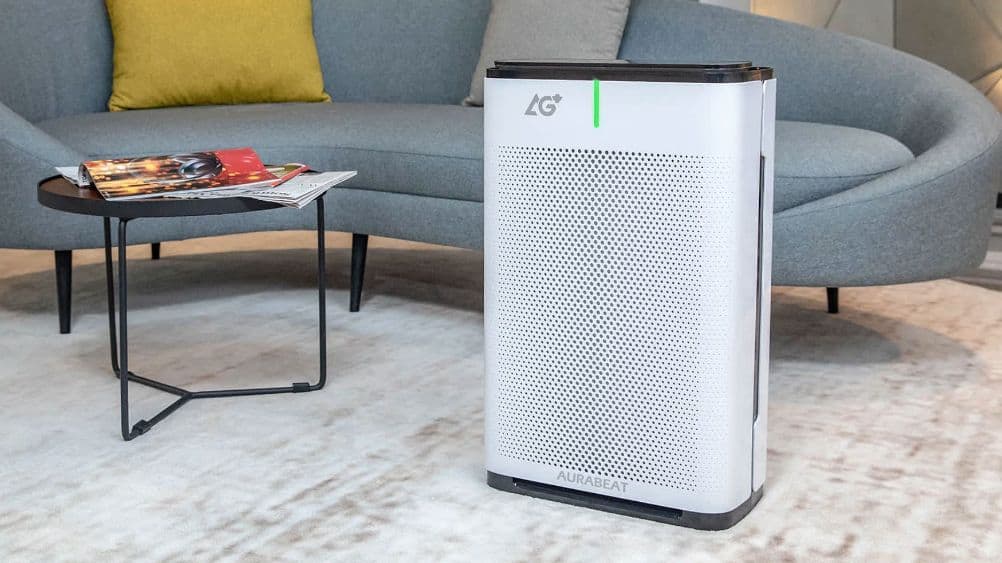
Introducing excessive pollutants to the space can also have a negative effect on your air purifier if it is suddenly faced with more particulate matter to remove from the air. Smoking indoors, burning food, or keeping windows open in highly polluted urban areas can decrease the effectiveness of your air purifier.
Placement can also impact how effective your air purifier is in some cases. For example, most ionic air purifiers work in 360 degrees, so placing your air purifier in a corner where half of its surface area is against a wall will dramatically decrease how much air it can purify. Try to place your air purifier in an open, central location if possible to maximise its usefulness.
In order to make sure your air purifier is working at maximum capacity, it is also vital to ensure that all filters (or electrostatic collection plates) are clean, fans are working as they should, and all electrical connections are in excellent condition. If any parts of your air purifier become damaged or too old, then effectiveness will be affected.
At the End of the Day
Your air purifier can only work as fast as it can work, and this speed will depend on extraneous factors such as room size, pollution levels, and location as well as on the device’s own systems. Different types of air purifiers target different pollutants which is a more important consideration to make than how quickly the air purifier will work.
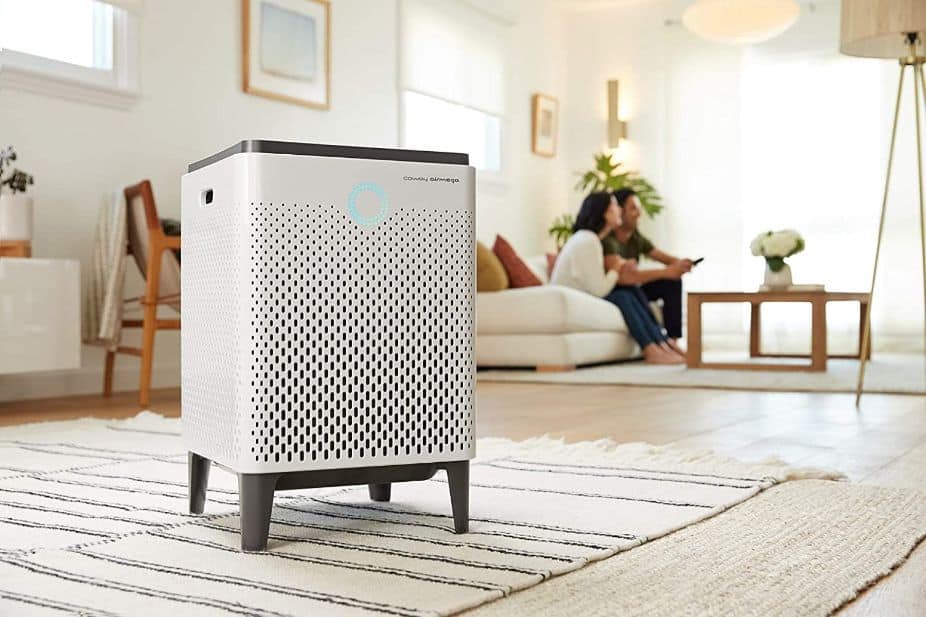
There’s no sense getting a HEPA air purifier because it’ll be faster if you’re only looking to target chemical fumes and odours, as a HEPA air purifier is not appropriate for this purpose.
Whatever kind you opt for, make sure it’s the most suitable option for what you wish to achieve. Once you’ve nailed this down, you can then work to ensure that your purifier is taken care of and maintained properly, and that it is not put in situations where it is overworked.
If you look after your air purifier as best you can, you can expect to enjoy the benefits it will bring for many years to come!
